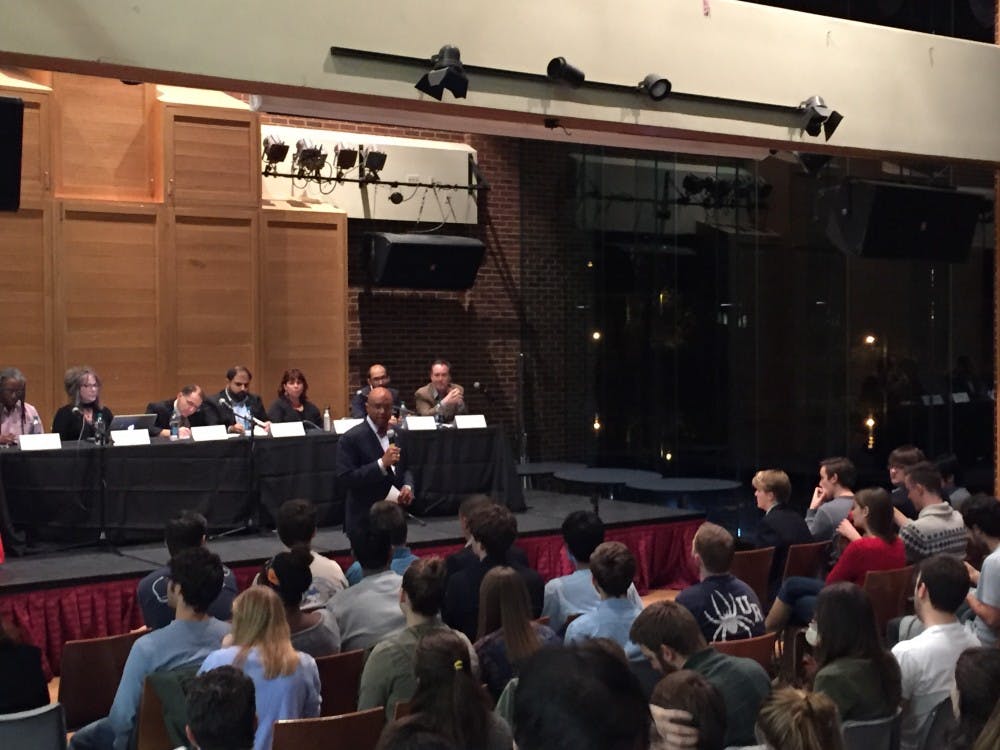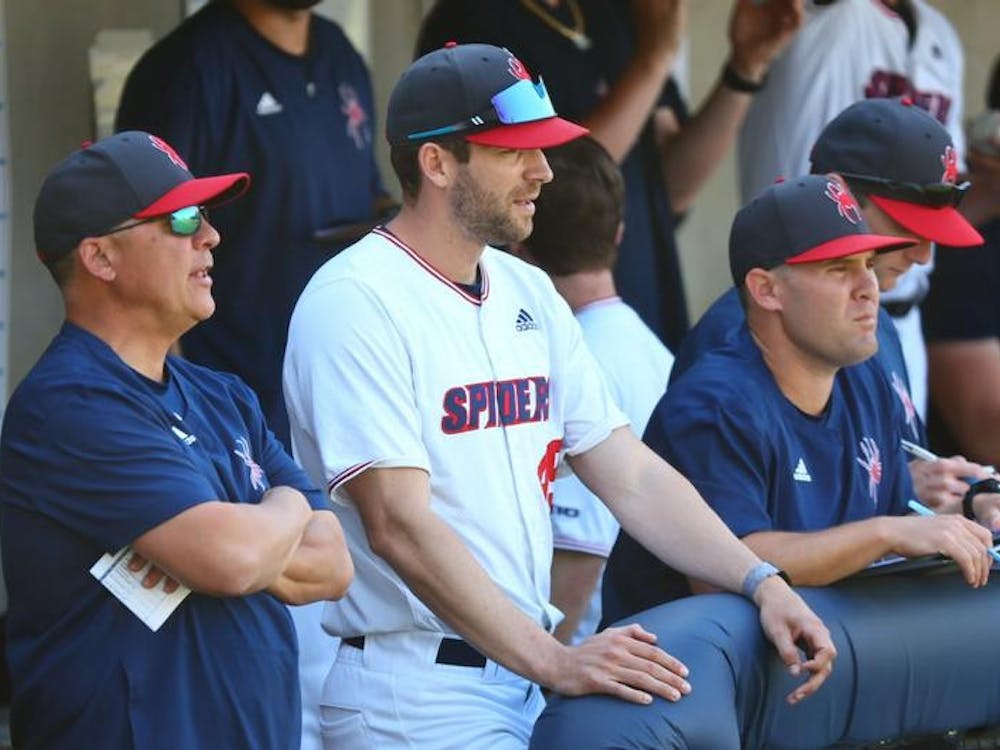More than 200 students and community members attended a forum Wednesday night in Tyler Haynes Commons to discuss the implications and possible ramifications of last week’s presidential election.
“We are living at a time when the parties are very polarized. Republican means conservative and Democrat means liberal,” Daniel Palazzolo, professor and chairman of political science, said to the crowded audience, illustrating the division that led to the creation of Wednesday’s dialogue.
The Richmond College Student Government Association and the Westhampton College Government Association organized Wednesday's forum, which was moderated by junior Jabari Lucas and consisted of a panel of professors from across the university.
President Ronald Crutcher opened the event with remarks about the role of education in politics.
“As a university community we have a set of values by which we live and interact with each other,” Crutcher said. “Respect for everyone in this community regardless of their class, their race, their ethnicity, their able-ness, their gender — that is something we really value.”
Crutcher said that Wednesday’s peaceful protest in front of Boatwright Memorial Library had provided a beautiful example of those values.
Saif Mehkari, assistant professor of economics, later shared this sentiment.
“I think kindness is an important thing,” Mehkari said. “To be great you also have to be kind.”
Crutcher closed by saying something he said he had planned on withholding: He thinks those who did not vote in last week’s elections should not be allowed to complain about the result.
“My grandparents and my great grandparents fought for me to have the right to vote,” Crutcher said. “Anybody who complains to you about the outcome of the election who didn’t vote… don’t even give them lips. Don’t even listen to them.”
Shahan Mufti, assistant professor of journalism, later respectfully disagreed with Crutcher.
“Young people didn’t come out and vote because they weren’t inspired to do so,” Mufti said.
Enjoy what you're reading?
Signup for our newsletter
Mufti said people lie about voting because of an unhealthy stigma around not voting. “You almost registered your dissent by staying silent,” he said. “A lot of people just sat this one out, and it’s telling in a lot of ways.”
Professors shared their thoughts and knowledge on various topics relating to the election with the purpose of moving beyond political parties and figureheads.
Palazzolo began the night with skepticism toward Trump’s plan to build a wall along the Mexico-U.S. border. “That’s a lot of concrete,” Palazzolo said.
The leaders of the event emphasized that the panel’s purpose was education, and the goal was to empower students through knowledge to engage in the political process in productive ways in the wake of an election that was upsetting to many.
“The metaphor of throwing gas on a fire is overused, but it fits in this situation,” Bertram Ashe, associate professor of English, said in response to a question about race relations in the wake of Trump’s election. “I just see a lot of unrest. ...A lot of people are very upset, justifiably so.”
Multiple faculty members then discussed white supremacy.
“We now are talking about white supremacy with a vernacular discourse of critique that hasn’t always been available to us,” Palazzolo said.
Mari Lee Mifsud, professor of rhetoric and the program coordinator for the Women, Gender, and Sexuality Studies major, and Ashe shared this sentiment.
“How must [racist comments] fall on a person of color’s ears when we cannot hear because of our white privilege,” Mifsud said.
The conversation turned toward sexism when a member of the panel, Tim Hayes, adjunct instructor of economics, asked why Hillary Clinton’s margin of victory among women was so small.
The two women on the panel responded.
“Sexism exists. It continues to be strong in this country,” Mary Finley-Brooke, associate professor of geography and the environment, said. “We can’t go backwards on this. We are global leaders, and we have to continue to be global leaders.”
Mifsud spoke to the trauma women are feeling in the wake of Trump’s candidacy.
“We saw [predatory stalking] happening on a presidential debate stage and it threw people into trauma,” Mifsud said.
For Mufti, the more sexist, racist and xenophobic Trump became, the clearer it was to him that Trump represented a “middle finger” to a large swath of the nation.
“In a way, Donald Trump might just be a symbol, a middle finger if you will, to the system,” he said.
Ashe closed the panel discussion by pointing out that people in the room might be searching for a happy ending, but in the case of America’s current political system, it is unlikely that the nation will have one.
“It’s going to be a difficult time and perhaps it should,” Ashe said.
Editor's note: The author of this article justifiably disagreed with the original headline that our editors wrote. It has since been changed to better represent the event and the story.
Contact news writer Claire Comey at claire.comey@richmond.edu
Support independent student media
You can make a tax-deductible donation by clicking the button below, which takes you to our secure PayPal account. The page is set up to receive contributions in whatever amount you designate. We look forward to using the money we raise to further our mission of providing honest and accurate information to students, faculty, staff, alumni and others in the general public.
Donate Now



